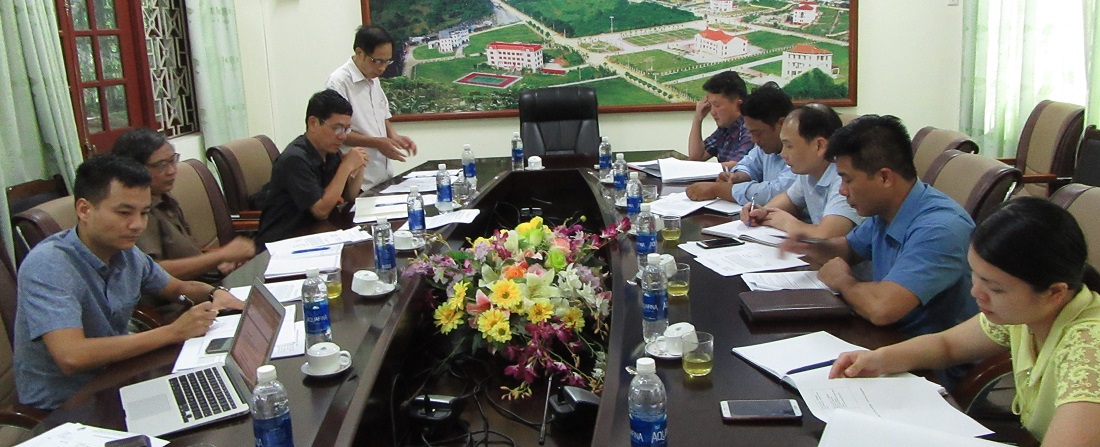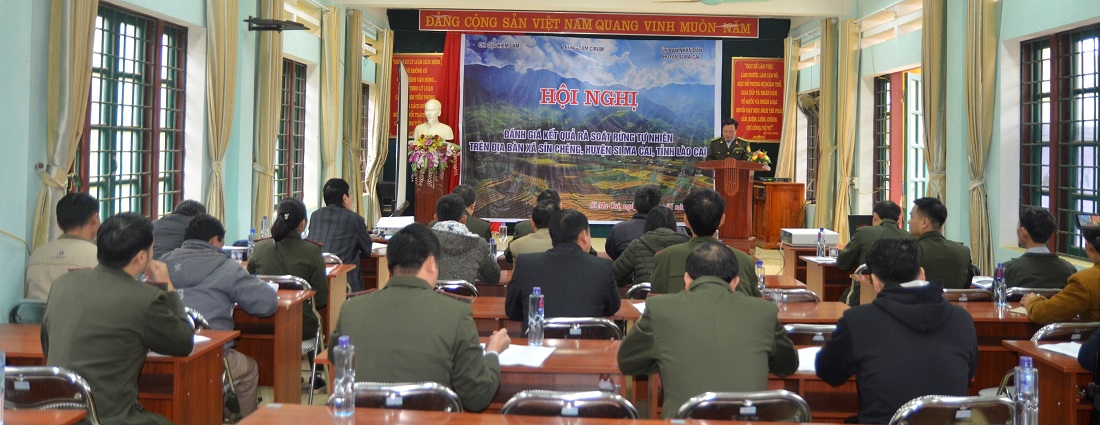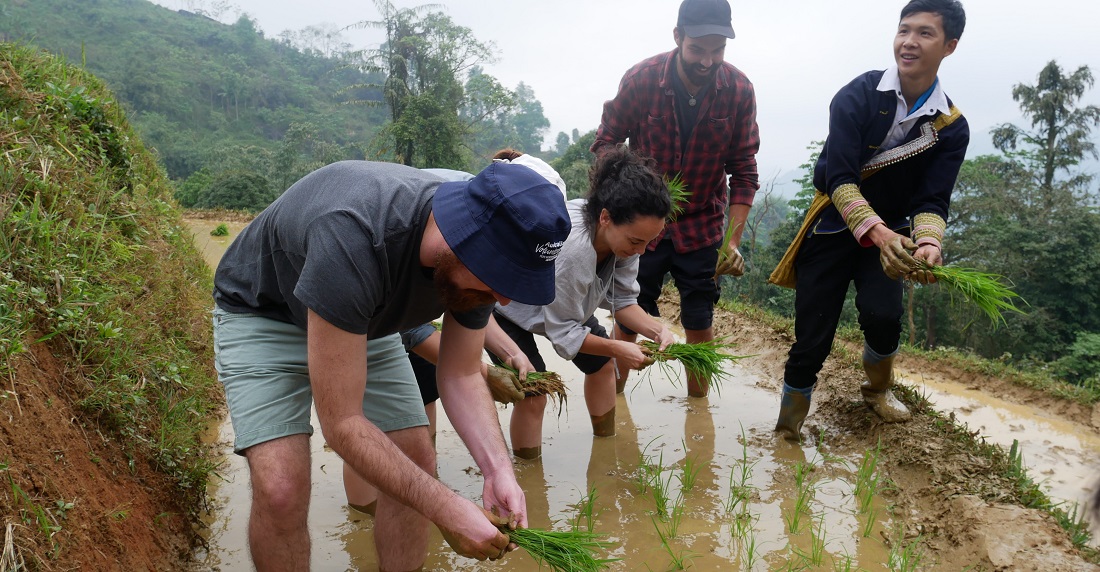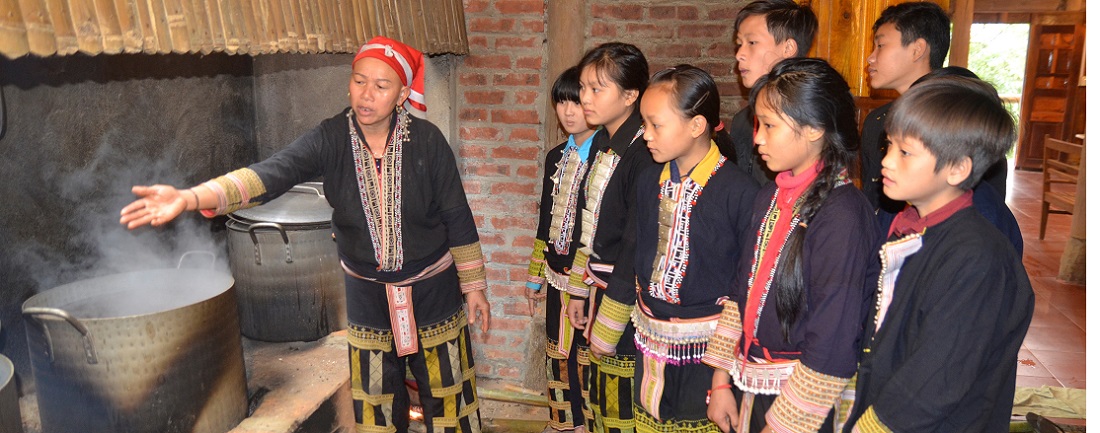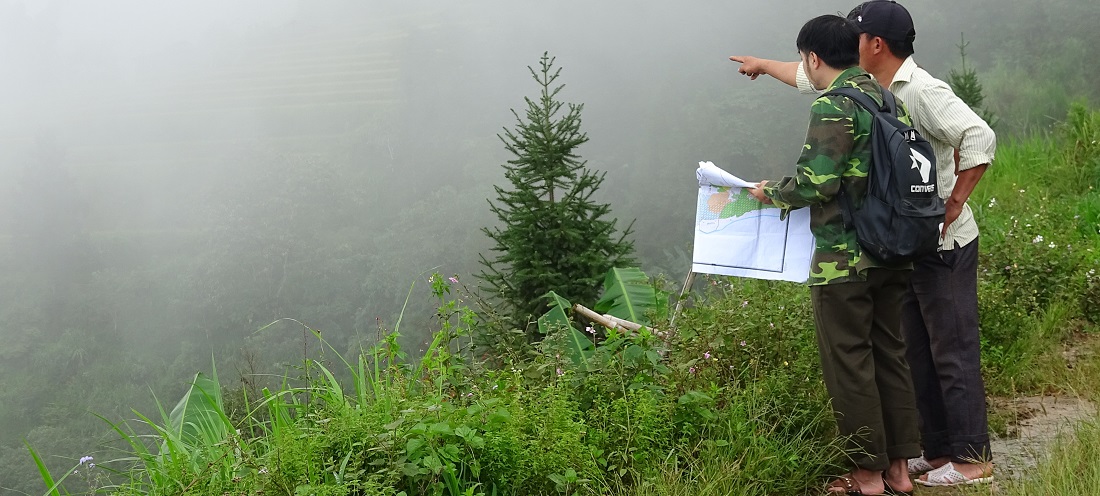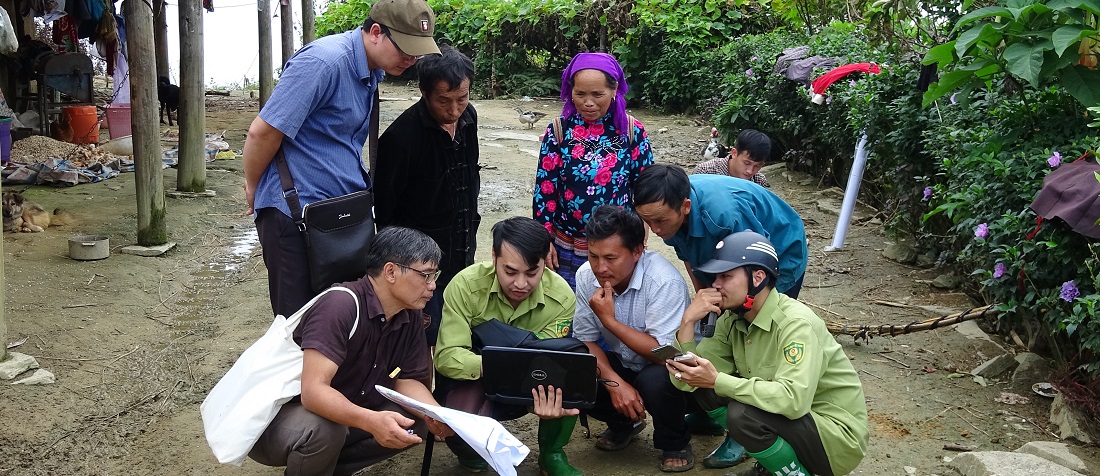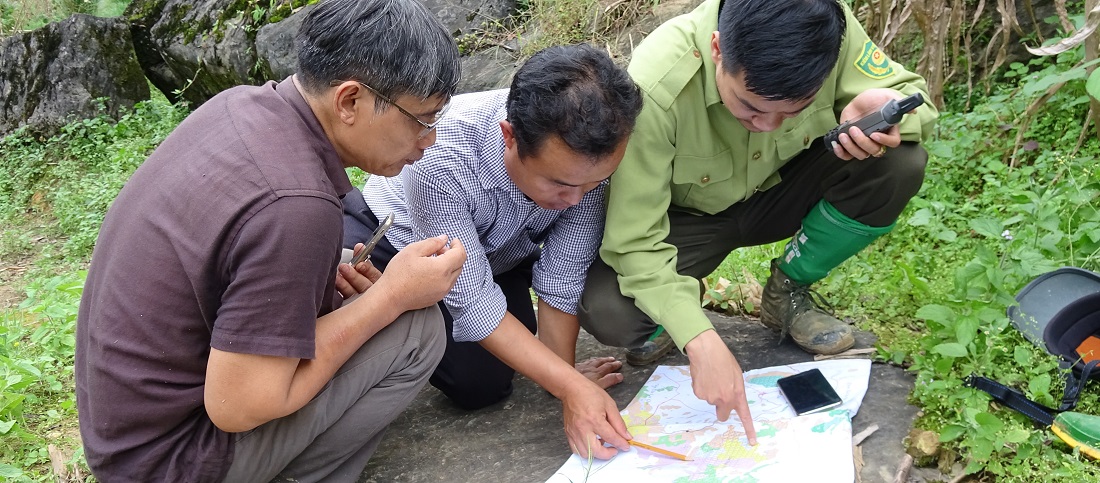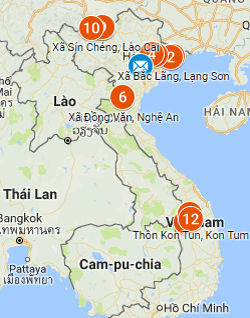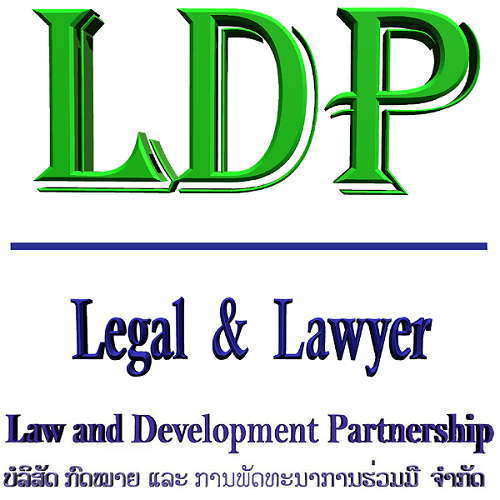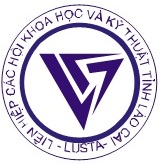News
LandNet seminar on the rights to protect the forest land from harmful investments
The seminar on "Sharing experiences in forest management and protection from investments" took place at the Human Ecology Practical Area (HEPA), at Son Kim 1 Commune, Huong Son District, Ha Tinh province on September 26th and September 27th, 2020. There were 21 representatives from 9 communes of 7 districts and 5 provinces attending the event. The participants of the seminar were officials of village and commune mass organizations and former leaders of communes. The content of the seminar focused on the implementation of rights and responsibilities in the land management, protection, particularly in case of investment in forest land.
.png)
Mr. Tran Quoc Viet is talking about HEPA and management and protection of forest land in Son Kim commune
Mr. Nguyen Huu Lai, former Secretary and Chairman of Ngu Hoa commune (Tuyen Hoa district, Quang Binh province) shared the process of advocating for the allocation of forest land to the local people, setting up nursery, planting acacia, pepper, fruit trees and other forestry trees in the commune. According to Mr. Lai, "forest land must be brought back to specific people, the land must be managed by a confirmed owner. Land rights should not be unconfirmed, because in that case, no one is concerned with forest protection".
Ms. Truong Thi Tuyet Ba, former Vice Chairman of the commune and leader of the Women's Union of Kim Hoa commune (Tuyen Hoa district, Quang Binh province) has been working closely with local people to keep the forest land area for their protection and use. As a prestigious person in the commune, Ms. Ba is advising incumbent leaders on how to protect the local forestland in accordance with the law. “Someone warned me: Why do you want to take your burden by asking to keep the forest? If someone cuts forest trees, you (the communal officers) will have to bear responsibility. I replied: for the people’s long term livelihoods, we need to keep the forest land areas"- shared Ms. Ba.
The representative of Hanh Dich commune (Que Phong district, Nghe An province) said that people in Hanh Dich are not as advantageous as those in Kim Hoa commune (where Ms. Ba resides) because the Hanh Dich communal leaders do not care about and support community forests since the rubber company came in and encroached the community forest land. However, local people and LandNet have repeatedly asked Que Phong Rubber company and authorities at all levels to solve the problem of the encroachment on community land for rubber plantation. The community received a document from the Provincial People's Committee, asking the company to cooperate with local authorities to resolve people's petitions against the encroachers. With local people’s constant pressure, so far the Rubber company stopped its encroachment on the community land although this company has not sent an official document or promise to solve this problem.
.png)
Participants of the seminar
People in Dong Van commune (Que Phong district, Nghe An province) are tending to convert acacia monoculture to forest protection and growth of indigenous tree species (such as Luong/ a local bamboo species). They have gained initial success, with better income in comparison to acacia plantation. More importantly, the ecological environment is guaranteed, there is no cut-off scene as harvesting acacia, so soil erosion and degradation can be avoided.
Mr. Nguyen Duc Su, representative from Cao Quang commune (Tuyen Hoa district, Quang Binh province) shared the process of advocating for the State Forest Enterprise (SFE) to return land to the locality to allocate land to households for acacia plantation, reforestation and diversified gardening in the commune. Mr. Su shared his experiences that: "In land allocation, we must go to the boundaries, to make sure that every households know their land area clearly, otherwise discrepancies will happen".
Representatives from Truong Son commune (Quang Ninh district, Quang Binh province) raised their issue that: although the local Van Kieu ethnic people are entitled to the policy of ensuring productive land according to Decision 134 of the Prime Minister, the area allocated to each household remains too narrow, while a number of households in the commune have not received the land titles or 'red books' yet.
.png)
Outdoor exchanging at HEPA
Mr. Tran Van Long, a representative from Xuan Trach commune (Bo Trach district, Quang Binh province) shared his persistent, long-term process of studying the law and asking related stakeholders, especially the SFE to properly implement the law and policies regarding forest protection and benefits. Therefore, Mr. Long and his local people have benefited from the forest trees they contracted to plant and protect. Local people have succeeded in requesting the company to return the forest land and received the land use right certificates. Via strong advocacy, the locals have successfully prevented a deforestation case caused by the local forestry company in 2013.
The representative of the Hmong community from Sin Chéng commune (Si Ma Cai district, Lao Cai province) raised the issue of the village community forests, which were formally managed by the Protection Forest Management Board. This situation caused a discrepancy, where procedures of forestland review was completed for final land allocation process, but the provincial authorities have not yet decided to grant land certificates to the community. Further advocacy is needed in the future, so as to require local authorities to complete procedures to grant land right certificates to local communities.
.png)
Planting trees at HEPA
Mr. A Duu, head of K'Bay village (Ho Moong commune, Sa Thay district, Kon Tum province) shared his experience of promoting customary law to ask outsiders who violated the village's forest to admit their mistakes, and then facilitate people from nearby villages join forest protection together. However, a part of the village's forest has not been issued ‘red book’ even though people are constantly proposing to allocate land, and the provincial government has instructed the community to use the land. "Our community’s problem is that we have not obtained the granted “red books”. So, we should keep reflecting this issue often, particularly in meetings between voters and members of the Provincial People's Council or members of the National Assembly" - Mr. A Du said.
On the basis of people’s reflection, CIRUM staff shared relevant legal provisions related to the responsibility in investment in forest land, especially the provisions in the Law on Forestry and Decree 156/2018/ND-CP detailing the implementation of articles of the Law on Forestry.
.png)
Exchanging with owner of orange garden in Kim Hoa commune, Huong Son district
In addition to the main contents of the seminar, the participants had an opportunity to visit the orange planting model on sloping land in Kim Hoa commune, Huong Son district and joined to grow forestry trees for forest enrichment at HEPA. The participants wanted to continue sharing legal knowledge and experiences in forest management and protection through cellphones and social networks such as Zalo and Messenger after this seminar.
Others
Sai Duan herbal bath service is now open for guests
Sin Cheng, Lao Cai: Deeper study for a complete forest map
Amomum longiligulare – a sustainable livelihood model
CIRUM’s work is improving land allocation outcomes for communities in Bat Xat district, Lao Cai
Workshop on "The results and inadequacies in the implementation of forestry policy"
The voice of the hydropower-driven resettled people should be heard
Community Forest Land Protection and Management: New Opportunities for Ethnic Minorities in Vietnam
A further step towards settle overlapping forest boundaries in Lao Cai
Independent evaluation of our project "Promoting Land Rights for Ethnic Minority People in Vietnam"
LandNet year-end meeting
Community members participate in developing a monitoring indicator framework
Community members participate in developing a monitoring indicator framework
Beautiful images of Sai Duan Herbal Bath Service of the Red Dao disseminated
Amomum longiligulare and joy of the Red Dao in Sai Duan village
The ASEAN We Want: An open statement to ASEAN Leaders






